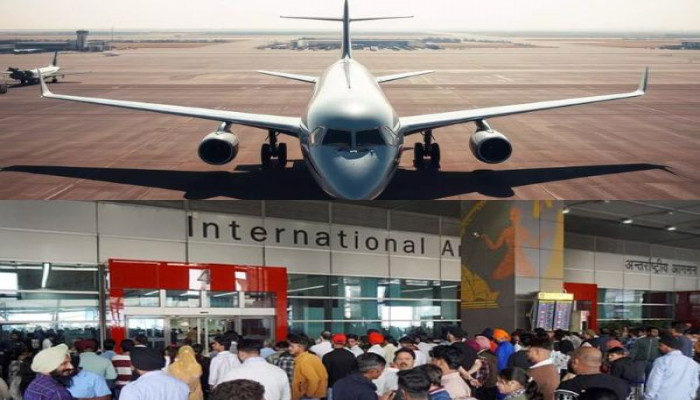India issues Kolkata NOTAM after Delhi and Mumbai incidents, raising concern over GPS interference along key air routes
- In Reports
- 06:38 PM, Nov 14, 2025
- Myind Staff
After similar alerts in Delhi and Mumbai, India has now issued a Notice to Air Missions, or NOTAM, warning of possible GPS interference or sudden signal loss along air traffic routes near Kolkata, according to defence analyst Damien Symon.
The NOTAM will remain active from November 13 to 17, 2025, and asks airlines and pilots to stay cautious about any disturbance in satellite-based navigation systems. Symon, who is a geo-intelligence researcher at The Intel Lab, confirmed this development in a post on X.
This is now the third busiest airspace in the country to see such problems in recent weeks, which has increased concern within civil aviation and national security circles.
Three major aviation zones have reported disruptions, which are Delhi, Mumbai and now Kolkata, and all of them are politically, economically and militarily important, and the interference points to the possibility of coordinated probing.
There is growing worry about external probing as well, and the pattern resembles GPS jamming methods seen in global grey zone conflicts, where adversaries quietly test a country’s response without moving into direct confrontation.
These disruptions affect both aviation and defence because any disturbance in navigation signals makes commercial flight safety and military readiness more difficult, especially during busy hours or periods of heightened alert.
These are high-value regions, and interference around metros linked to command centres, coastlines and major trade routes raises further strategic alarms.
This advisory has come shortly after the Directorate General of Civil Aviation instructed airlines, pilots and air traffic controllers to report any GPS spoofing incident within ten minutes of detection.
In its circular, the DGCA said, “Any pilot, ATC controller, or technical unit detecting abnormal GPS behaviour, e.g., position anomalies, navigation errors, loss of GNSS signal integrity, or spoofed location data, shall initiate real-time reporting, within 10 minutes of occurrence.”
Recently, similar anomalies were noticed around New Delhi, and this raised concerns about the reliability and safety of Global Navigation Satellite System data used in both civil aviation and defence operations.
GPS spoofing is the deliberate act of sending false GPS signals to mislead navigation systems, and aircraft, ships, drones and even telecom networks that rely on GNSS can be fooled into showing wrong coordinates, altitude or direction.
Spoofing is more advanced than jamming because jamming only weakens or blocks the original signal, while spoofing imitates it to create false but convincing navigation data.
Both state and non-state actors have used spoofing to hide their locations, divert vessels or create confusion in contested airspaces.
Navigation errors can occur and aircraft may drift away from their assigned routes, which makes the job of air traffic controllers more difficult, especially around crowded airports like Delhi, Mumbai or Kolkata.
Autopilot systems can also be affected when GNSS-based inputs become inaccurate, and this can force pilots to switch to manual control.
There are additional safety risks during low visibility because landings and approaches that rely on satellite-aided navigation can become unreliable and increase operational challenges.
Communication and surveillance systems like ADS-B can send incorrect location data if spoofed, which affects the situational awareness of both civilian and military operators.
There is also a strategic risk, because repeated spoofing attempts may be used to test a country’s cyber electronic defence systems or to send signals in grey zone conflict situations.







Comments